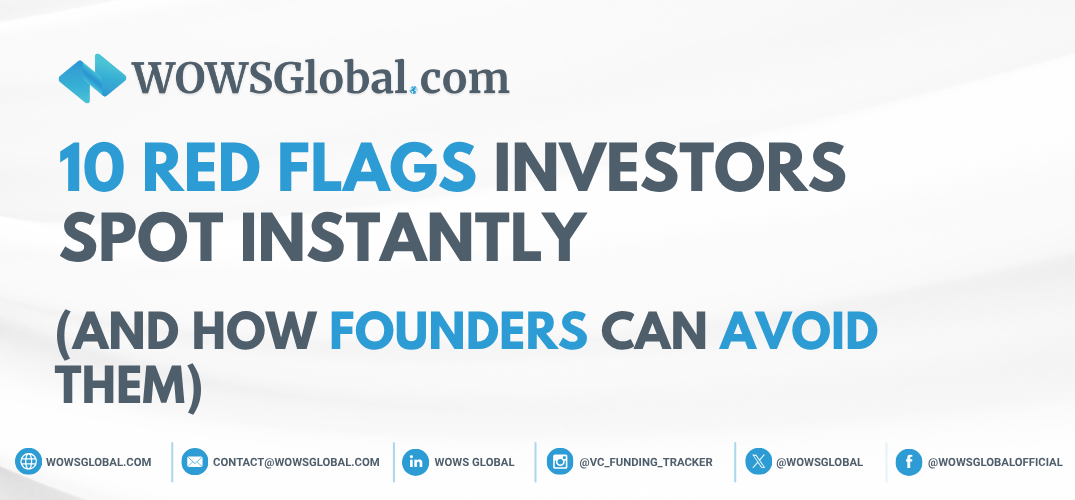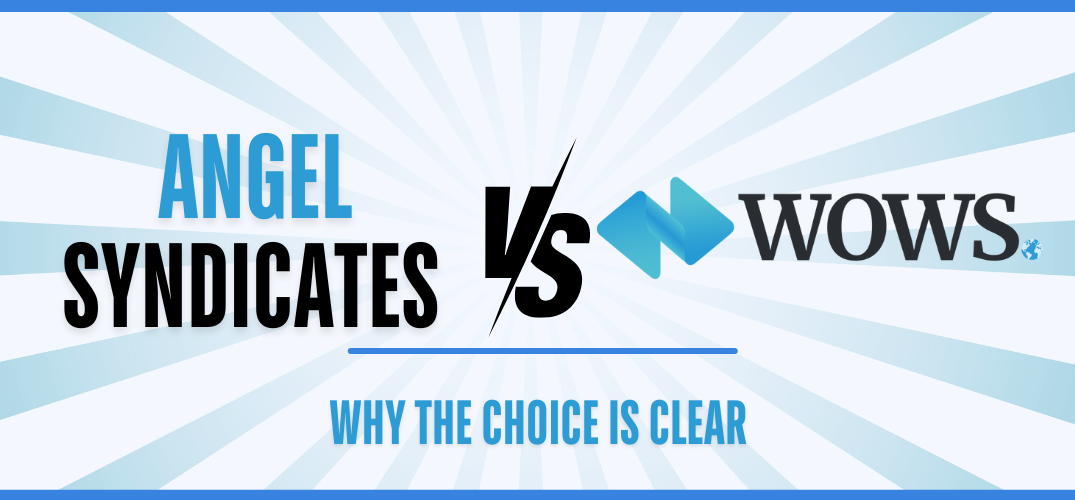The A-Z of Fundraising (Part: 4 O-S)
Fundraising for Founders Fundraising Funding for Founders

Part 4 – O to S

O is for:
Offering Memorandum: A legal document drafted by startups. It provides potential investors with details of an investment round.
Operating Margin: This margin ratio measures a company’s pricing strategy and operational efficiency.
Operating Partner: An executive whose focus is working with portfolio companies to increase their value. An operating partner will often have specific expertise, for example, a particular industry focus.
Ordinary Share: The basic form of a company’s shares. They are the most popular share type and entitle holders to dividends as well as capital if a company is wound up. Ordinary shares usually carry voting rights (one vote per share is normal).
Outstanding Shares: This refers to the number of shares a company has issued to shareholders. It includes those given to founders, investors, advisors, and option holders.
Overhang: A term describing the event in which an investor’s liquidation preferences exceed a company’s current value.
Owner-employee: Either a sole proprietor or any person who owns at least one-fifth of the capital and/or profits associated with a business

P is for:
Paid-In-Capital: The amount of committed capital transferred from a limited partner to a general partner.
Partner: Besides the obvious meaning of being a partner in a company, the term ‘Partner’ in fundraising terms refers to a person whose job description is similar to Principals or Venture Partners. They spend a lot of their time networking and generally sit on the boards of portfolio companies.
Partners also have higher-level duties. While these vary, good examples are identifying emerging technology sectors for their firm to invest in, identifying then developing a solid rapport with key players in such sectors, regular assessment and communication to limited partners relating to current fund performance, and every 5-7 years raising another fund.
Pay-to-Play Provision: This relates to a clause in a term sheet. It is common for both companies and investors to seek this agreement. The pay-to-play provision requires investors to participate in future funding rounds. By doing so it prevents their preferred stock from being converted into common stock.
Performance Fees: Compensation given to an advisor based on a client’s portfolio performance.
Pitch/Pitching: This is a crucial part of fundraising for startup founders. It is the opportunity to introduce your business concept to potential investors, investors, and stakeholders in a few minutes. Delivering a persuasive ‘pitch’ is very often the difference between securing funding and not.
Placement Agent: A third-party firm. They identify potential investors for private equity funds (and/or other securities).
Portfolio Company: This is classed as either a company or entity that venture capital firms or buyout firms invest in. It also refers to all companies that are currently backed by a private equity firm. This is known as the firm’s portfolio.
Pre-Accelerator: A program offering advice for companies that haven’t entered an accelerator.
Pre-Emptive Right: A clause found in an investment agreement. It grants investors the right to maintain the same equity percentage after restructuring.
Pre/Post Money Valuation: These 2 terms describe a company’s value before and after investor involvement.
Pre-Money valuation is classed as the value of your company and is agreed upon between founders and incoming investors before they invest.
Post-Money valuation is the Pre-Money valuation amount plus the agreed investment amount.
Preferred Stock: Stock that carries a fixed dividend. Preferred stock takes sale-order priority over other stock forms. This often results in preference when any dividends are given to shareholders. In short: They get paid first!
Dividends can be paid monthly or quarterly. They have similar features to debt in that they can appreciate in price. Preferred stock usually comes with no voting rights.
Principal: Total value of an originally invested sum.
Promissory Note: This note is classed as a legal document. It details the debt amount owed along with an obligatory plan for repayment.
Pro-Rata: In fundraising terms, this means the division of equity or stocks based on equal proportions.
Protective Provisions: These are provisions set out in a company charter. They give exclusive voting rights to preferred stockholders.

Q is for:
Qualified Financing: A threshold amount of raised financing that triggers the conversion of a convertible note into equity. The conversion can be optional or automatic.
Quorum: The number of shareholders whose presence (or proxy) is necessary at a company meeting to take corporate action.
R is for:
Recapitalization: Classed as a corporate reorganization of capital structure. This is achieved by changing the mix of equity and debt.
Redemption Right: This is an investor right. It stipulates that a company must buy back or redeem stock. Redemption rights are typically requested by investors in tandem with a financing round.
Restricted Stock: There are 2 types of restricted stock; Restricted Stock Units (RSUs) and Restricted Stock Awards (RSAs).
They are issued by a company to key employees as compensation. This is how they differ:
An RSU gives the employee a right to receive an agreed number of shares once certain vesting conditions are met.
An RSA refers to shares of stock owned by the employee from the date of grant. The holder is at liberty to sell or transfer these shares once certain vesting conditions have been met.
Vesting conditions vary but can include such things as length of employment, achievement of milestones, and/or performance metrics.
It should be noted that RSUs and RSAs have different tax consequences.
Run Rate: This is the estimated future financial performance of a startup. It is based on the current financial conditions and forward assumptions on growth.
Runway: A startup’s runway states how many months the business can continue to operate before it is out of money. It is a crucial budgeting, strategizing, forecasting, and fundraising tool that needs to be accurately defined throughout a company’s lifecycle. The term is often used in conjunction with ‘Burn Rate’).

S is for:
Secondary Public Offering: Stock presented for sale from a company to the public after an IPO.
Secondary Purchase: This is where stock is purchased from a shareholder rather than from the company itself.
Securities: Any type of equity or debt.
Seed Round: Often seen as crucial to startups. Classed as the first official round of financing a startup seeks.
Series A: The first major venture capital funding round where preferred stock is issued.
Series B/C/D/E: Later funding rounds where preferred stock is issued.
Share Consent: Another legal clause to be aware of. If a share consent clause is included in your term sheet it means an investor must give consent for the business to sell shares at a future date.
Startup Capital: The money needed to begin and operate your business. Startup capital usually comes from personal savings as well as investments from family and close friends.
Statutory Voting: Relates to a Board of Directors voting method. Each board member receives 1 vote for each share they own.
Stock: A security representing ownership interest (or equity) in a company. Equity holders of the stock are often referred to as shareholders or stockholders.
Common Stock and Preferred Stock are two different classes of stock. Each has different voting and economic rights.
Stockholders’ ownership interests are often shown as either a percentage of stock owned or the number of shares owned. This detail should be recorded on a company’s capitalization table
Stock Options: A stock option gives the person a right to purchase or sell the stock for an agreed set price during a predefined period.
Storytelling: For many founders, this is not a natural asset. However, it is one of the most important skills a founder can have (or gain through practice). Those startup founders who want to get funded should have or should seek assistance in crafting a good story and becoming good at delivering it.
Strategic Investors: Startup founders would do well to look at this type of investor. A strategic investor adds value to their investment either via experience or industry ties.
Super Angel: This is a very active angel investor. A super angel is classed as an investor who makes more investments and one who tends to invest much larger sums of money and/or participate in later funding rounds.
While not set in stone, a super angel will write checks ranging from $250,000 to $2 Million. It is also the case that many super angels are entrepreneurs who have had successful exits in the past.
Sweat Equity: A term coined for early startup employees (or contractors). These people are awarded shares/equity in the startup either in place of some, or all of their salary.
Syndication: In investment terms, this is a venture capital practice whereby each individual investor contributes a small amount of money. The total of the syndicated amount is then used to fund a company.
If you are looking to get your fundraising efforts off to the best possible start please reach out to us at: contact@wowsglobal.com
Related Posts
-

Fundraising 409A Valuation Cap Table Management Investor
WTF Is 409A and Why Should I Care?
Learn what a 409A valuation is, why it matters for employee stock options and how it impacts founders, investors, taxes and diligence, plus how WOWS Global can help. -

Early Startups Fundraising Due Diligence Data Room
2026 Fundraising: What Changed?
Fundraising in 2026 isn’t about moving faster—it’s about showing up prepared. Learn how to build an investor-ready system (modeling, governance, data room, and investor fit) so diligence doesn’t drag and your strongest conversations go the distance. -

Fundraising investor relations Traction Financials
10 Red Flags Investors Spot Instantly (And How Founders Can Avoid Them)
From vague problems to broken cap tables, these are the 10 signals that turn investors off—plus practical fixes so you can raise with confidence. -

Fundraising Angel Syndicates VC
The Battle of Angel Syndicates vs. WOWS Global: Why the Choice is Clear
WOWS Global vs. Angel Syndicates: A detailed comparison of costs, network depth, technology, and expert support. Learn why WOWS Global is the better choice for startup fundraising and scaling. -

Startups Fractional CFO Fundraising
Why Your Accounting Director Might Not Be Enough: The Surging Demand for Fractional CFOs in Startups
In the fast-paced world of startups, having an Accounting Director may not be enough. Discover why over 75% of pre-Series B startups are turning to fractional CFOs for strategic financial guidance that can make or break your growth trajectory. -

Early-Stage Investors Funding Funding Round Fundraising for Founders Investor
Shh! Don’t Share These Fundraising Insider Secrets
Startup founders need to fasten their seatbelts and prepare for a roller-coaster ride if they are to achieve success. It is a straight fact that founders will find themselves wearing many hats to get their venture up, running, and thriving.
